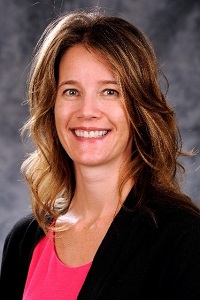Director's Letter

As science advances, innovations can improve our lives and address significant global challenges, like pollution. However, emerging technologies— such as nanomaterials or new approaches to detect or remove contaminants— can also create novel health hazards for researchers and workers who encounter them. The same is true for emerging contaminants that are not yet well studied. To address these new challenges, the NIEHS Superfund Research Program (SRP) funds Occupational Health and Safety Training Education Programs on Emerging Technologies, known as R25 grants.
SRP funded seven R25 projects in 2021 to create training programs for students, researchers, and professionals involved in the evaluation and handling of hazardous substances. The trainings also aimed to protect people who interact with many forms of emerging technologies — including those who work in the fields of nanotechnology, industrial hygiene, and healthcare — from harmful exposures. These programs involve researchers from a variety of institutions across the U.S. and in multiple scientific and engineering disciplines, recognizing that solutions for new environmental health problems require multidisciplinary collaborations.
In the latest round of grant funding, institutions added a new focus: research experiences and education not available through formal training mechanisms. From continuing education courses, summer internships, and field investigations, these new projects move beyond the classroom to provide intensive training and hands-on research experience in occupational health and safety management practices. These offerings are also broadly and freely available online, with some content posted on YouTube.
Our R25 grant recipients are addressing current and future occupational health and safety hazards, and their accomplishments will help protect the next generation of researchers and workers.
Warm regards,
Michelle Heacock, Ph.D.
Director
Superfund Research Program
to Top



